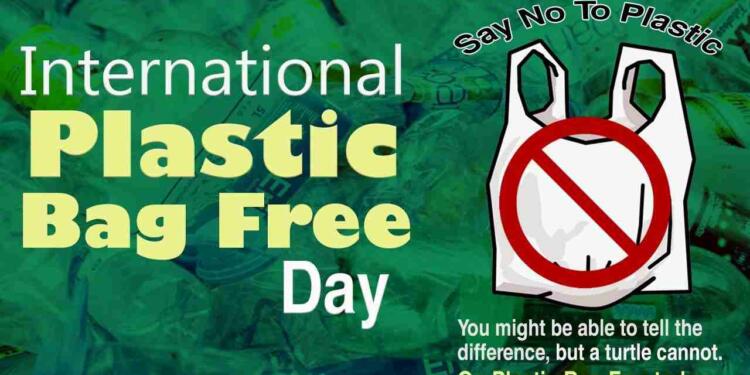10 Lines on No Plastic day
-International No-Plastic Day is celebrated on July 3, is the day we remind ourselves that every bag we carry affects the lives of every person in the world for generations to come.
-As a part of No plastic Day, countries can stop using polythene bags, the government can ban, tax or other agreements on the use of polythene bags, accept environmental bags already on the market, help clean up discarded waste. We can celebrate No Plastic day day by organizing or contributing to raising awareness to stop using disposable polythene bags.
Aim and Importance of No plastic Day to avoid the use of plastic
-The common aim of No Plastic day is to encourage the use of environment friendly bags. Every day we learn more about how plastic affects our planet and how conglomerates are cutting down on plastic. In order to create a world without polythene bags, it is important to educate the public about the impact of polythene bags on the environment, and this should help change their behavior.
-As of 2020, the movement has grown to nearly 6,500 people and over 2,400 organizations. The Zero Waste Europes Bag Free World campaign has become a global initiative and has been selected as No Plastic day day of 3 July to encourage the use of environmentally friendly products, including paper and tissue bags, and avoid the use of polythene bags, single-use polythene.
Also Read : My Waste My Responsibility: Responsibility of each individual towards dumping garbage
How you can as an individual support the aim of No plastic day
-You can buy several reusable grocery bags so you don’t have to reach for plastic ones at the store. This not only ensures that you reduce the use of plastic, but it can also create a unique bag that no one else has. Use your voice, challenge yourself to avoid polythene, and encourage others to take action. Through collective action, we can create a plastic-free future and give future generations a more stable and healthier environment. The more of us change this plastic-free July and the months ahead, the more we can influence our friends, family and society to change their lives. International Day Without polythene Bags gives us the opportunity to remind ourselves and others that every action we take and every bag we have affects the lives of every person in the world for generations to come.
-Planet Patrol is an incredible charity that operates around the world on a mission to eliminate single-use plastic, thereby striving to fight the plastics crisis that is affecting our world. Plastic Free July is a global movement helping millions of people become part of the solution to plastic pollution. World polythene Bag Free Day is now part of the global polythene Free movement, which today unites 1,900 organizations aound the world.
Why is Polythene bad and how does it cause pollution
-Plastic pollution is a global disaster. Unfortunately, it is caused by human activities. In the right environment, compostable plastics are completely biodegradable and can be used up in 180 days or less. But, at the same time polythene bags are a source of environmental pollution and a major pollutant in Washington’s waste disposal system, which can clog sorters and endanger the safety of workers.
More than eight million tons of plastic are dumped into our oceans every year. Every year, 8 million tons of plastic ends up in the oceans, harming fish and wildlife. About 8.8 million tons of polythene waste ends up in our oceans every year.
Also Read : Clean India Healthy India: Importance of Swachh and Swasthya Bharat
Strategies developed around the world to decrease the use of Polythene
-In India, grocery stores have stopped giving polythene bags after purchasing the groceries and have switched to use of cloth bags which are eco friendly and generate business to small businesses producing such products.
-In Romania, manufacturers and importers of non-biodegradable bags are subject to an environmental tax of RON 0.2 (€ 0.04) – the idea is that manufacturers and retailers can levy this tax on consumers to encourage them to use fewer polythene bags. The state agency said food service companies, restaurants, retailers, small and casual sellers and grocery stores will be prohibited from providing disposable polythene bags to customers.
-In England, retailers with 250 or more employees are required to charge 5p for each disposable bag used. These measures are taken in Hawaii, North Carolina, Italy, China, many African countries, and Australia.
Also Read : Beach Please Program: #BeatPlasticPollution























